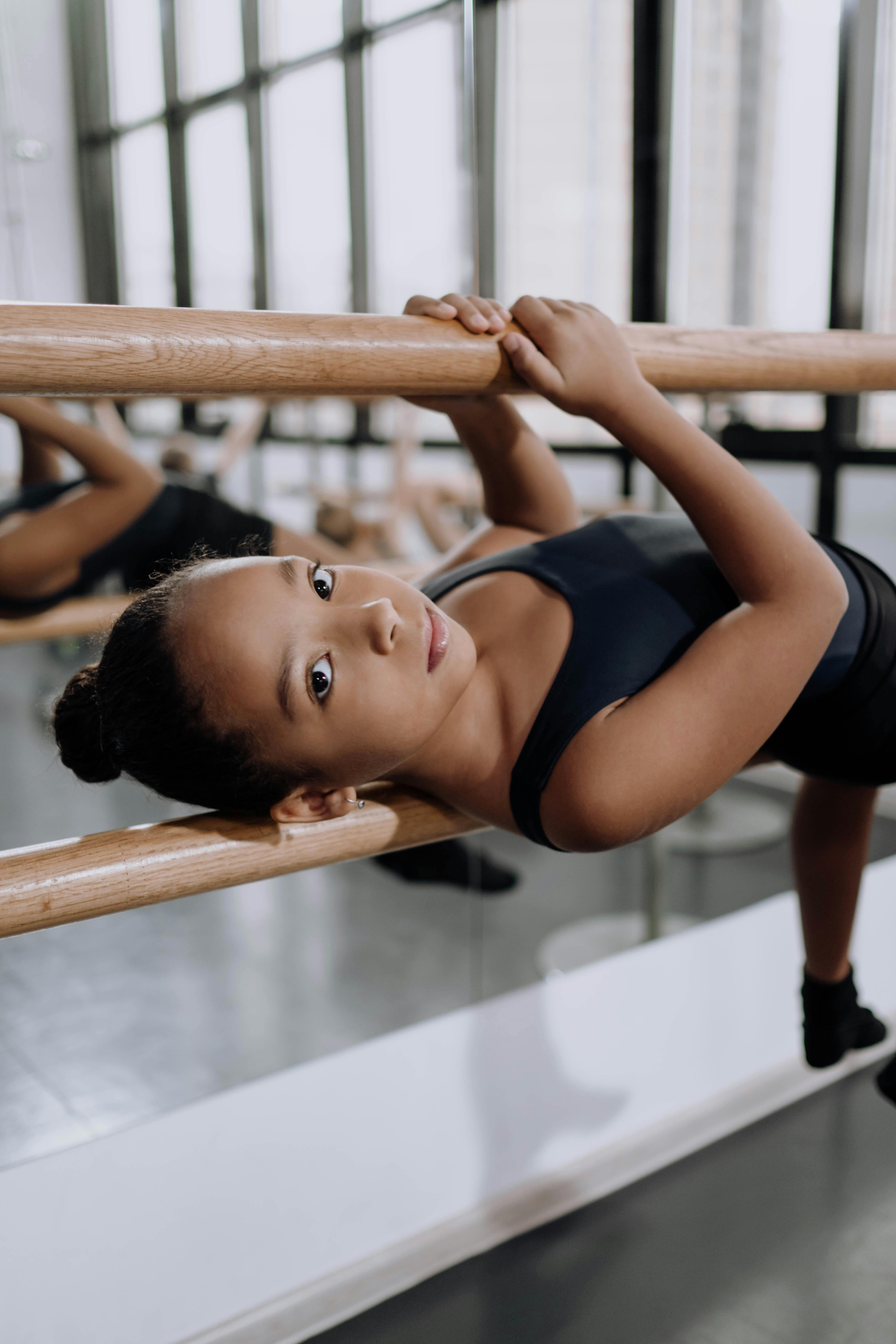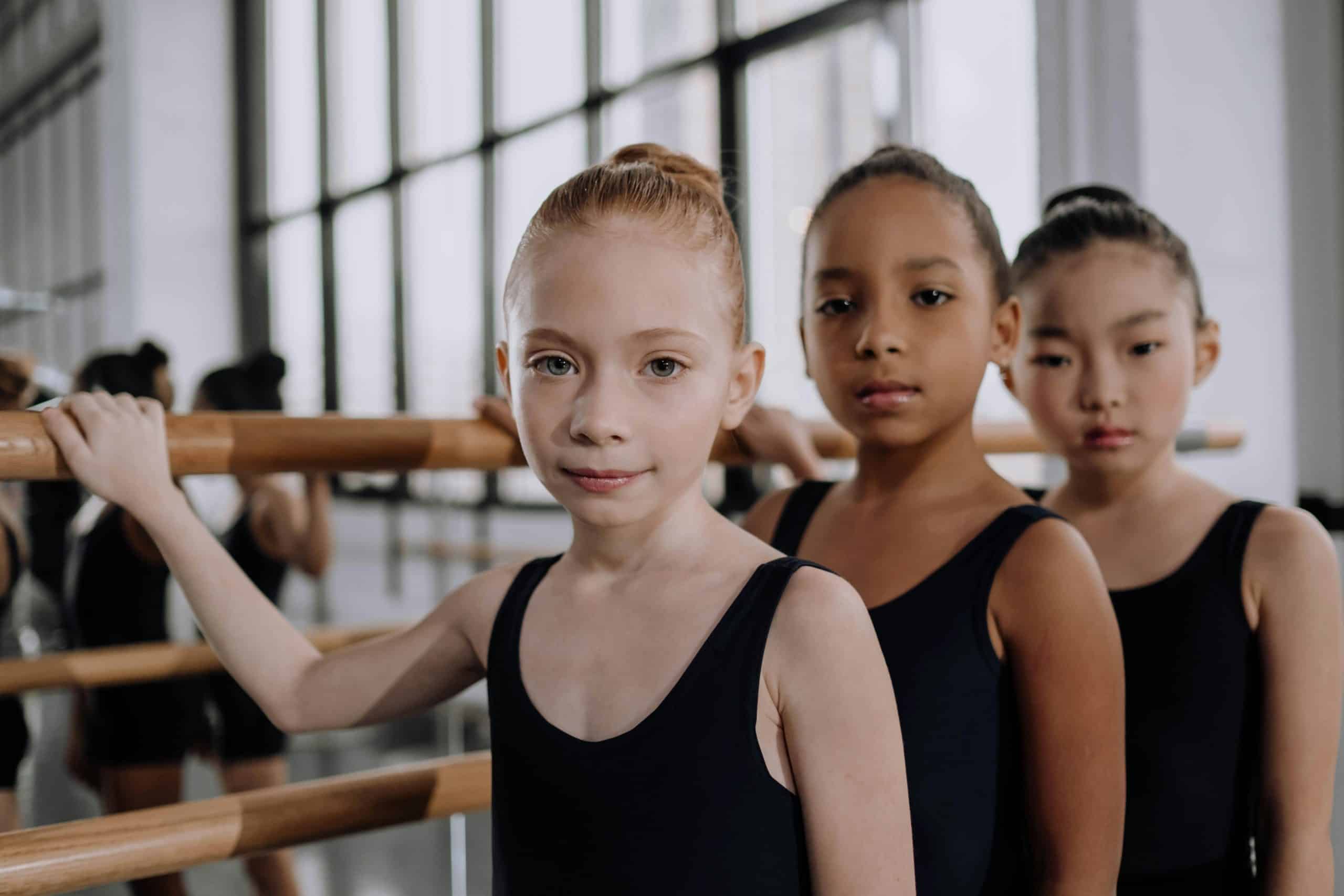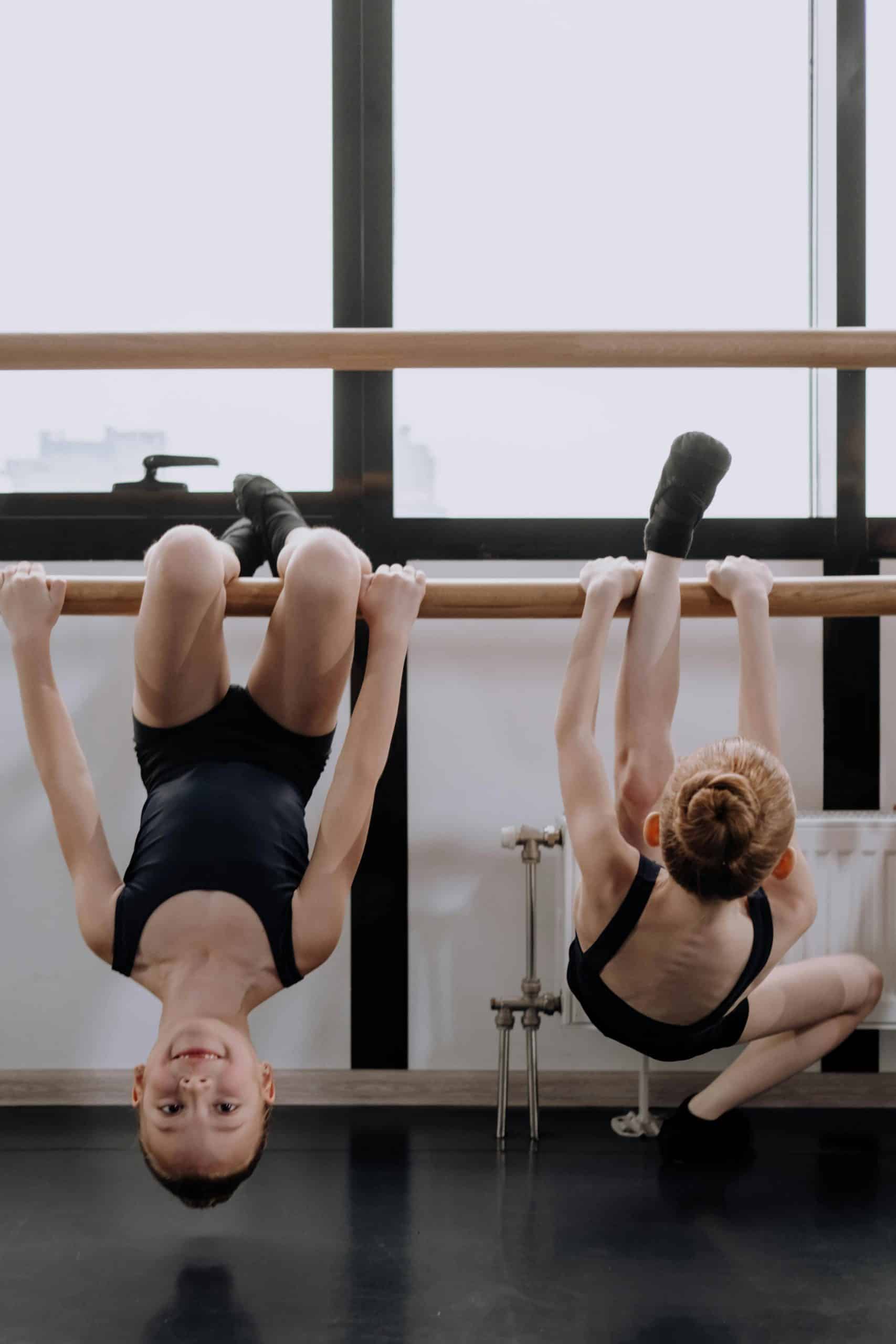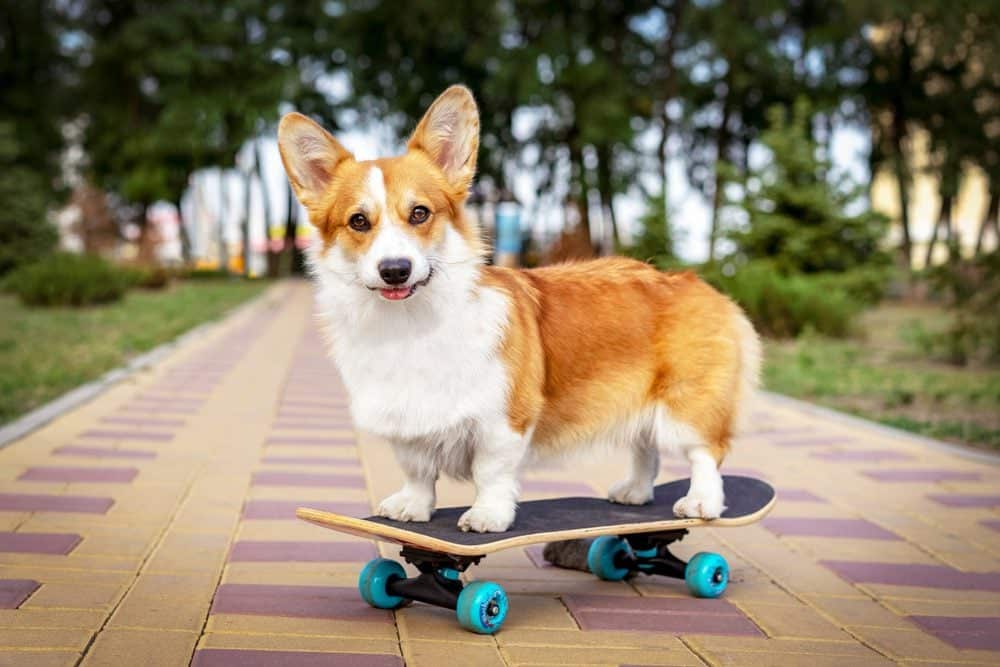If you've recently welcomed a lovable and mischievous Corgi puppy into your home, you may be wondering how to effectively discipline them without dampening their joyful spirit. In this article, you'll discover a range of gentle and effective discipline techniques tailored specifically for your furry friend. From positive reinforcement to setting consistent boundaries, these strategies will help you foster a well-behaved and happy Corgi companion. So let's dive into the world of effective discipline techniques for Corgi puppies!

This image is property of images.pexels.com.
Establishing a Routine
Consistent Feeding Schedule
When it comes to disciplining corgi puppies, one of the most effective methods is to establish a consistent feeding schedule. Providing your puppy with regular meals at the same time each day helps them develop a sense of predictability and structure. Consistency in their feeding routine not only promotes good behavior but also helps with potty training as it establishes regular bathroom habits. Stick to a schedule that suits your puppy's age and breed, ensuring they receive the right amount of food at appropriate intervals.
Regular Exercise
Just like humans, corgi puppies need regular exercise to stay healthy and well-behaved. Incorporating exercise into their daily routine not only helps them burn off excess energy but also stimulates their minds and prevents behavioral issues that arise from boredom. Engaging in activities such as walks, playtime, and training sessions not only strengthens your bond with your puppy but also provides them with an outlet for their natural instincts. Be sure to tailor the exercise routine to your puppy's age and physical condition, gradually increasing the intensity as they grow.
Designated Potty Areas
Proper potty training is essential for a well-disciplined corgi puppy. Create designated potty areas in your home or yard where your puppy can relieve themselves. Establishing consistency in the location helps them understand where it is appropriate to go and avoids confusion or accidents in other areas. Take your puppy to the designated potty area at regular intervals, especially after meals or waking up from sleep. Be patient and reward them with praise and treats when they successfully use the designated area, reinforcing the desired behavior.
Positive Reinforcement
Reward-based Training
Positive reinforcement is an effective discipline technique for corgi puppies as it focuses on rewarding desired behavior rather than punishing unwanted behavior. When your puppy exhibits good behavior, such as following commands or displaying appropriate manners, reward them with treats, verbal praise, and affection. This method creates a positive association and motivates your puppy to repeat the behavior in the future. Consistency is key when using reward-based training, ensuring you provide immediate and consistent rewards to reinforce the desired behavior.
Treats and Praise
Treats and praise are powerful tools when it comes to positive reinforcement. Use small, bite-sized treats that your puppy loves as a reward for their good behavior. Verbal praise, such as saying "good job" or "well done," accompanied by a cheerful tone of voice, further reinforces the positive behavior. The combination of treats and praise helps your corgi puppy associate their actions with positive outcomes, encouraging them to continue exhibiting good behavior.
Clicker Training
Clicker training is a popular technique in positive reinforcement training. With this method, you use a small handheld clicker to make a distinct sound that indicates to your puppy they have done something right. By associating the click with a reward, such as a treat or praise, you can effectively communicate and reinforce desired behaviors. Clicker training is particularly useful for teaching specific commands or tricks, as the sound of the click provides instant feedback to your puppy, making it clear when they have performed correctly.
Redirecting Unwanted Behavior
Identifying Problem Behaviors
Corgi puppies, like any other breed, may exhibit unwanted behaviors during their development. It is essential to identify these problem behaviors early on to effectively address them. Common problem behaviors in puppies may include biting, chewing on furniture, excessive barking, or jumping on people. Observe your puppy's actions and look for patterns, noting any behaviors that are undesirable or potentially harmful. Identifying and understanding problem behaviors will guide you in redirecting their actions towards more appropriate behaviors.
Distracting with Toys or Activities
When you notice your corgi puppy engaging in unwanted behavior, such as biting or chewing on furniture, it is important to redirect their focus to more appropriate activities. Provide them with a wide variety of chew toys, interactive puzzles, or stuffed animals to redirect their attention and satisfy their need to chew. Offering engaging toys or activities that stimulate their minds and keep them occupied helps deter unwanted behavior and prevents boredom-induced misbehavior.
Redirecting to Appropriate Behaviors
Redirecting your corgi puppy to appropriate behaviors is crucial for effective discipline. When you observe them engaging in a problematic action, gently interrupt the behavior and direct their attention towards a more desirable alternative. For example, if your puppy starts biting your hand during playtime, immediately stop the play and provide them a chew toy instead. By consistently redirecting their actions towards acceptable behaviors, you help them understand what is expected of them and reinforce positive habits.
Ignoring Undesirable Actions
Non-reinforcement of Unwanted Behavior
Ignoring undesirable actions can be an effective discipline technique when dealing with certain behaviors in corgi puppies. Some puppies may exhibit attention-seeking behaviors or act out to gain your attention. By not reinforcing these unwanted behaviors with any form of attention, you avoid inadvertently rewarding them. It is important to note that this technique should only be used for behaviors that are not harmful or dangerous. For more severe issues, professional help should be sought.
Avoiding Eye Contact and Attention
When confronted with unwanted behavior, consciously avoid making eye contact or giving your corgi puppy undue attention. Eye contact and attention can reinforce their behavior, giving them the impression that their actions have yielded a response from you. Instead, divert your focus elsewhere and remain calm and composed. By withholding eye contact and attention, you communicate to your puppy that their actions do not elicit a response from you, discouraging further repetition.
Withdrawing Physical Touch or Play
Another way to address undesirable behavior is by withdrawing physical touch or play. If your corgi puppy becomes too rough during playtime and starts biting or scratching, promptly cease the interaction and move away. This communicates to them that their behavior has resulted in the cessation of a desirable activity. Ensure you remain consistent and resume physical touch or play only once they have calmed down and are displaying appropriate behavior. This method assists your puppy in understanding the boundaries and limits of acceptable play.

This image is property of images.pexels.com.
Time-outs
Creating a Safe and Isolated Space
Time-outs can be an effective discipline technique for corgi puppies when used appropriately. When your puppy engages in persistent and undesirable behavior, it may be necessary to provide them with a designated time-out space. This space should be safe, secure, and separate from the rest of the household, such as a crate or small room. Ensure the time-out location is comfortable, with access to water and appropriate bedding. It is important to note that time-outs should not be associated with fear or punishment but rather as a form of temporarily removing them from the situation.
Applying Time-out for Misbehaviors
When your corgi puppy engages in a misbehavior that requires intervention, calmly and gently lead them to the designated time-out space. Use a neutral tone of voice and avoid harsh physical gestures. Leave your puppy in the time-out area for a brief period, such as a few minutes, ensuring they receive no attention or interaction during this time. This helps them associate their misbehavior with a temporary exclusion from the family unit, reinforcing the idea that certain actions are not acceptable.
Releasing from Time-out and Reconnecting
After the designated time has passed, quietly and calmly release your corgi puppy from the time-out space. Avoid any form of reprimand or discussion regarding their misbehavior. Resume normal activities and provide them with positive attention once they have exhibited appropriate behavior. The goal of time-outs is not to create distance or separation but rather to create a temporary break in behavior and allow your puppy to reset their focus. It is important to re-establish a positive connection and continue reinforcing desired behaviors through reward-based techniques.
Consistency and Predictability
Setting Clear Boundaries
Consistency and predictability are crucial elements in successfully disciplining your corgi puppy. Setting clear boundaries from the beginning helps them understand what is expected of them and minimizes confusion. Establish rules regarding behavior, such as no jumping on furniture or no begging at the table, and consistently enforce them. Providing clear and consistent guidelines helps shape your puppy's understanding of appropriate behavior and reinforces your role as the pack leader.
Having Consistent Cue Words
In addition to setting clear boundaries, consistent cue words play a significant role in effective discipline. Teaching your corgi puppy specific cue words for commands, such as "sit," "stay," or "down," enables clear communication and reinforces desired behaviors. Use the same cue words consistently and ensure all family members are on the same page. By having consistent cue words, you eliminate confusion and provide your puppy with a clear understanding of what is expected of them.
Avoiding Mixed Messages
While it is natural to show affection for your corgi puppy, it is important to avoid sending mixed messages during discipline. Ensure that everyone in the household is consistent in their approach to discipline and does not inadvertently reinforce undesired behaviors. For example, if your puppy jumps on a family member, make sure everyone avoids rewarding the behavior with attention or physical touch. By eliminating mixed messages, you provide your corgi puppy with a clear and consistent understanding of appropriate behavior.

This image is property of images.pexels.com.
Firm but Gentle Approach
Maintaining Calm Energy
When it comes to disciplining your corgi puppy, it is essential to maintain a calm and composed demeanor. Dogs are sensitive to their owners' energy and emotions, and a calm presence helps convey consistent messages. Avoid reacting with anger or frustration, as this can create fear or anxiety in your puppy. Even if you are addressing unwanted behavior, approach the situation with a steady and controlled energy, which helps your puppy feel secure and understand that discipline is part of their training and upbringing.
Using Authoritative Voice
Your voice tone plays a significant role in asserting authority and discipline. When issuing commands or redirecting your corgi puppy's behavior, use an authoritative voice that conveys confidence and leadership. Speak clearly and firmly, ensuring your tone commands attention without resorting to aggression or harshness. The use of an authoritative voice helps your puppy understand that you are in charge and establishes the necessary boundaries for their behavior.
Avoiding Harsh Physical Punishments
While it can be tempting to resort to physical punishment when disciplining a corgi puppy, it is important to avoid such methods. Harsh physical punishments, such as hitting or yelling, can cause fear, anxiety, and aggression in your puppy. These methods do not effectively teach appropriate behavior and may lead to long-term behavioral issues. It is always best to focus on positive reinforcement, redirection, and patience when disciplining your corgi puppy to foster a trusting and respectful relationship.
Socialization and Exposure
Gradual Introduction to New Environments
Socializing your corgi puppy is crucial in their development and plays a significant role in proper discipline. Gradually introduce your puppy to new environments, experiences, and stimuli in a positive and controlled manner. Expose them to different sights, sounds, and situations, such as meeting new people, encountering other animals, or exploring new places. By gradually increasing their exposure and ensuring positive encounters, you help your corgi puppy become well-adjusted, confident, and less prone to fear-based or reactive behaviors.
Positive Encounters with Other Animals
Part of effective discipline for corgi puppies involves teaching them appropriate behavior around other animals. Arrange positive and supervised encounters with well-behaved dogs or other animals to promote socialization. Allow your puppy to interact and play under controlled conditions, ensuring that both animals are comfortable and safe. Encourage positive interactions and intervene when necessary to prevent aggressive behavior or inappropriate play. By providing your corgi puppy with opportunities to learn and socialize with other animals, you help them develop good social skills and reduce the likelihood of behavioral problems.
Exposing to Various Stimuli
Corgi puppies, like all dogs, benefit from exposure to various stimuli during their critical developmental period. Introduce your puppy to different sounds, textures, surfaces, and situations to build their confidence and resilience. Gradually expose them to things like car rides, vacuum cleaners, thunderstorms, or crowded environments. By ensuring these experiences are positive and rewarding, you help your corgi puppy become more adaptable, less fearful, and better equipped to handle new or potentially challenging situations.
Prevention and Management
Puppy-Proofing the Living Space
Prevention is better than cure when it comes to disciplining your corgi puppy. Before bringing your puppy home, puppy-proof the living space to ensure their safety and to minimize opportunities for misbehavior. Secure or remove any potentially dangerous items, such as toxic plants, sharp objects, or electrical wires. Keep valuable or fragile items out of reach to prevent destruction. By creating a safe and controlled environment, you reduce the chances of your puppy engaging in undesirable behaviors and set them up for success.
Using Crate Training
Crate training is an effective method to manage and prevent unwanted behaviors in your corgi puppy. A crate serves as a safe and comfortable space where your puppy can rest or have some downtime when needed. Introduce crate training gradually and positively, associating the crate with positive experiences, such as treats, meals, or their favorite toys. By giving your puppy structured and supervised time in the crate, you reduce the likelihood of destructive behaviors when they are unsupervised and provide them with a sense of security.
Supervising and Reducing Opportunities for Misbehavior
Constant supervision is essential, especially during the early stages of training and development. Keep a close eye on your corgi puppy to minimize opportunities for misbehavior. If your puppy starts displaying signs of undesirable behavior, such as chewing on furniture or attempting to dig in the garden, gently and calmly redirect their attention to more appropriate activities. By actively supervising and redirecting their actions, you reinforce positive behaviors and discourage the repetition of unwanted behaviors.
Seeking Professional Help
When Behavior Issues Persist
If despite your best efforts, behavior issues persist, it is crucial to seek professional help. Some corgi puppies may exhibit persistent or severe behavioral problems that require the intervention of a certified dog trainer or veterinary behaviorist. These professionals have the expertise to assess and address complex issues, such as aggression, separation anxiety, or fear-based behaviors. They can provide you with tailored guidance and training techniques to help you and your corgi puppy overcome challenging behaviors and build a harmonious relationship.
Choosing a Certified Dog Trainer
When seeking professional help, it is essential to choose a certified dog trainer who specializes in positive and science-based training methods. Look for trainers who have credentials from reputable organizations, such as the Certification Council for Professional Dog Trainers (CCPDT). These trainers have undergone comprehensive training and adhere to ethical standards. A certified dog trainer can work with you and your corgi puppy to address specific behavioral concerns and provide you with the necessary tools and techniques for effective discipline.
Working with a Veterinary Behaviorist
For more severe or complex behavior issues, a veterinary behaviorist may be necessary. Veterinary behaviorists are veterinarians who have specialized training in animal behavior and can offer a comprehensive and holistic approach to addressing behavior problems. They can conduct a thorough assessment, including medical and genetic factors, and develop an individualized behavior modification plan for your corgi puppy. Working with a veterinary behaviorist ensures that any underlying medical or psychological issues are appropriately addressed and increases the likelihood of long-term success in disciplining and managing your corgi puppy's behavior.
In conclusion, effective discipline techniques for corgi puppies focus on creating a structured and positive environment, promoting good behavior through consistent training, and redirecting or managing unwanted behaviors. By establishing a routine, using positive reinforcement, redirecting or ignoring unwanted actions, and maintaining a firm but gentle approach, you can help your corgi puppy grow into a well-behaved and obedient companion. Socialization, prevention, and seeking professional help when needed are also key elements in raising a disciplined and happy corgi puppy. Remember to approach discipline with patience, love, and understanding, as building a strong bond and mutual respect with your corgi puppy is essential for successful discipline.


